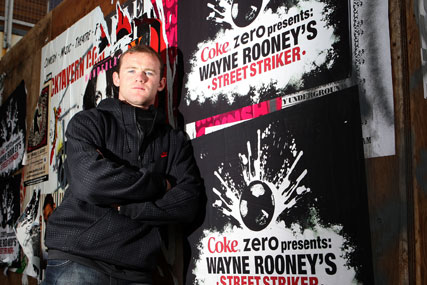
Coca-Cola has so far invested £22.7m in marketing the low-calorie variant, but its market share fell one percentage point year on year to just 2.2% in the four weeks ending 26 December 2009, according to Nielsen. It recovered slightly in January to 2.5%.
Coke Zero was the first variant added to the Coca-Cola range for 22 years. The company's aim was for it to be as big as Diet Coke within 10 years.
However, in the four weeks to 26 December, Diet Coke's market share towered above that of Coke Zero, reaching 26.8%, up by one percentage point on the same period in 2008. Despite this disparity, Coca-Cola insisted that it remained "fully committed to Coke Zero in Great Britain".
Last year Coca-Cola launched its most ‘laddish' marketing push for Coke Zero, aimed at 20-something men and intended to further distance itself from Diet Coke, which now heavily targets a female audience.
Experts have warned that the brand's failure to increase its market share could threaten its place on retailers' shelves.
Andrew Marsden, a marketing consultant and former Britvic marketing director, said that Coca-Cola faces tough questions. He said: "Shelf space is valuable and retailers want big volumes."
Nonetheless, Jonny Forsyth, senior drinks analyst at Mintel International, argued that, while there is a place for Coke Zero, "the idea that it will someday be a rival in share to Diet Coke is fanciful".
In the four weeks to 26 December Pepsi witnessed a 10.2% share for its Pepsi Max brand, up from 8.7% in the previous year. ‘I think the targeting of Pepsi Max was just a little bit more irreverent, which appeals to the target audience, and the name sounds energetic and exciting. Coke zero sounds like a low calorie drink which might appeal to women, but will turn male consumers off,' added Forsyth.
Zero's first major marketing campaign, created by VCCP, broke in July 2006 and in the 16 weeks immediately after its introduction, Zero's UK sales reached £24.1m.
Despite an initial burst in sales, in the 12 months to 2 January 2010, sales of Coke Zero were flat year on year, with sales of £56.3m.
Mark Whalley, a consumer analyst at Datamonitor said: ‘Initially it was successful with a lot of interest. But I think the novelty of the drink has worn off for consumers now and the brand is failing to get more people to convert.'
Dave Wallwork, managing director at Feel Good Drinks and former head of category development at Coca-Cola Enterprises, questions the brand's positioning.
‘For years Diet Coke competed with Pepsi Max and men would happily drink it. By introducing Zero they [Coca-Cola] set themselves a tough task by effectively telling men that they should be drinking Zero.'



.jpg)
.jpeg)
